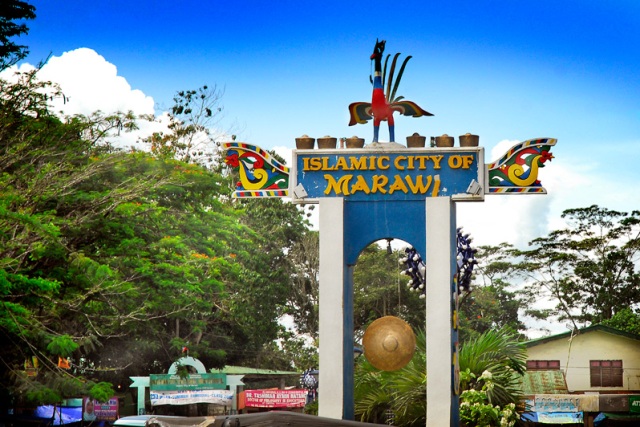
In its latest political risk analysis titled “End of Marawi siege but terror threat remains,” BMI Research said it has maintained a short-term political risk score of 63.1 out of 100 for the Philippines as the threat of terrorism remains high. File
The terror threat remains high in the country despite the recent liberation of Marawi City from militants claiming allegiance to the Middle East-based Islamic State (IS), the research arm of the Fitch Group said in a report.
The terror threat remains high in the country despite the recent liberation of Marawi City from militants claiming allegiance to the Middle East-based Islamic State (IS), the research arm of the Fitch Group said in a report.
In its latest political risk analysis titled “End of Marawi siege but terror threat remains,” BMI Research said it has maintained a short-term political risk score of 63.1 out of 100 for the Philippines as the threat of terrorism remains high.
“While the defeat of militants affiliated with the so-called Islamic State in Marawi City is positive for peace and security and marks a setback for terrorism in the region, we are keeping our short-term political risk score for the Philippines at 63.1 out of 100, which sits below the regional average score of 68.9,” it said.
BMI Research pointed out there is likelihood that remnants of the defeated militants might launch retaliatory attacks and some may have already started regrouping in areas around the ruined city.
“We believe that it would be premature to upgrade the Philippines’ security score as the Mindanao region remains under martial law and the defeat of the rebel force led by Abu Sayyaf and the Maute is likely to inspire retaliatory attacks in the form of bombings and lone wolf attacks in metro areas, as well as more kidnapping incidents,” it added.
President Duterte declared the liberation of Marawi City last Oct. 17 with the death of terrorist leaders Omarkhayam Maute and Isnilon Hapilon of the Abu Sayyaf Group,
A total of 847 terrorists, 163 government troops and 47 civilians were killed in the siege, which began on May 23, prompting President Duterte to place the entire Mindanao under martial law. More than 500,000 people have been displaced.
“The daunting task of rebuilding the city given the widespread poverty and lack of resources could also provide a fertile breeding ground for other extremist groups,” BMI Research said.
It warned that remnants of the Maute group, the Abu Sayyaf and the Bangsamoro Islamic Freedom Fighters (BIFF) were still in the thousands and that they could link up with foreign fighters to complicate the government’s task of eliminating jihadist networks.
“While the defeat of militants affiliated with the so-called Islamic State in Marawi City is positive for peace and security and marks a setback for terrorism in the region, we are keeping our short-term political risk score for the Philippines at 63.1 out of 100, which sits below the regional average score of 68.9,” it said.
BMI Research pointed out there is likelihood that remnants of the defeated militants might launch retaliatory attacks and some may have already started regrouping in areas around the ruined city.
“We believe that it would be premature to upgrade the Philippines’ security score as the Mindanao region remains under martial law and the defeat of the rebel force led by Abu Sayyaf and the Maute is likely to inspire retaliatory attacks in the form of bombings and lone wolf attacks in metro areas, as well as more kidnapping incidents,” it added.
President Duterte declared the liberation of Marawi City last Oct. 17 with the death of terrorist leaders Omarkhayam Maute and Isnilon Hapilon of the Abu Sayyaf Group,
A total of 847 terrorists, 163 government troops and 47 civilians were killed in the siege, which began on May 23, prompting President Duterte to place the entire Mindanao under martial law. More than 500,000 people have been displaced.
“The daunting task of rebuilding the city given the widespread poverty and lack of resources could also provide a fertile breeding ground for other extremist groups,” BMI Research said.
It warned that remnants of the Maute group, the Abu Sayyaf and the Bangsamoro Islamic Freedom Fighters (BIFF) were still in the thousands and that they could link up with foreign fighters to complicate the government’s task of eliminating jihadist networks.
The Marawi siege has been regarded as “the most serious attempt to export violent extremism and radicalism in the Philippines and in the region” by the Philippine government and has stoked broader concerns about the spread of IS and terrorism in Southeast Asia.
The battle for Marawi is also considered the largest campaign that IS has supported outside Syria and Iraq.
“Despite the end of the insurgency, we highlight that the threat of terrorism is still very much present in the Philippines and around the region,” it said.
The battle for Marawi is also considered the largest campaign that IS has supported outside Syria and Iraq.
“Despite the end of the insurgency, we highlight that the threat of terrorism is still very much present in the Philippines and around the region,” it said.

No comments:
Post a Comment
Note: Only a member of this blog may post a comment.